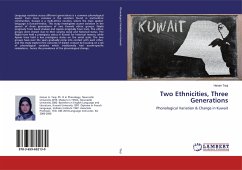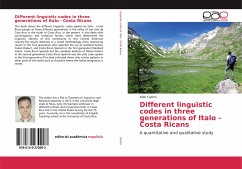Language variation across different generations is a common phonological aspect. Even more common is the variation found in multi-ethnic communities. Kuwait is a multi-ethnic country, where the main spoken language is Kuwaiti-Arabic. This study investigates accent variation in the speech of three generations of two Kuwaiti ethnic groups: Najdis (originally from Saudi Arabia) and Ajamis (originally from Iran). The ethnic groups were chosen due to their varying social and historical status. The Najdis have held a prestigious status in Kuwait for historical reasons, while Ajamis have held a less prestigious status on the social scale. The two groups have over the years gradually come into contact with each other, and this study explores the outcome of dialect contact by focusing on a set of phonological variables which traditionally had accent-specific realisations...hence the prevalence of the phonological change.








